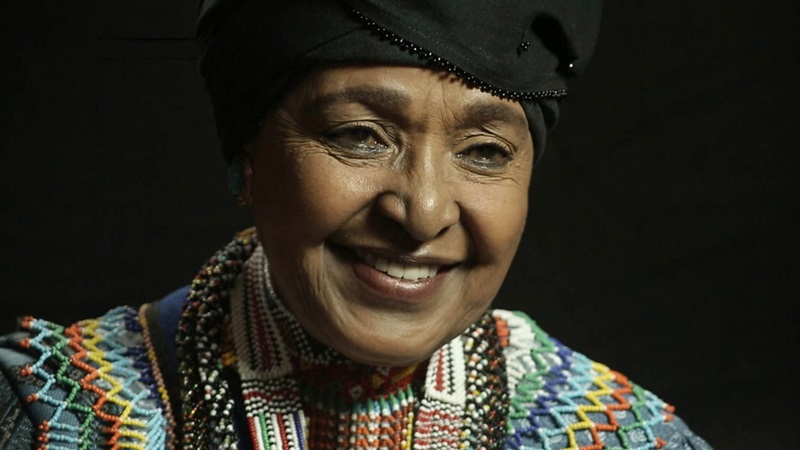
It’s estimated that there are more than 7 million undiagnosed cases of diabetes in the United States. These are some of the symptoms women should look out for.
Hold on to your pancreas: Did you know that if you live in the United States, you have close to a 1 in 10 chance of developing diabetes? If you are one of the many who will find themselves diagnosed with this complicated condition, you’ll join about 30.3 million people in the country who already have it.
The bad news is that managing diabetes can be challenging, and women seem to have an even tougher time getting things under control than men do. Fortunately, women with diabetes can lead very healthy, fulfilling lives, says Kate McKernan, program coordinator for UPMC Susquehanna Diabetes and Nutrition Care Center in Pennsylvania.
—Kate McKernan
“As women, we tend to focus on caring for others and not ourselves. If you are a woman diagnosed with diabetes, it is most important to make an appointment for yourself to learn as much as you can about how to best manage your diabetes.”
Let’s take a look at how diabetes affects women and what you can do if you find yourself diagnosed.
Signs of Diabetes in Women
Although you’ll need to check with your doctor to find out for sure what they mean, your body will often give you warning signs that things aren’t working how they should. Along with common signs of diabetes like hunger, fatigue, and increased thirst and urination, some symptoms are specific to women.
Recurrent Yeast Infections
High levels of glucose in the blood can cause fungus to grow. The result? Recurrent yeast infections. An overgrowth of yeast can appear as thrush in various parts of the body. But don’t wait if you think you have this type of infection, cautions nutrition consultant Sandra Arévalo, spokesperson for the American Association of Diabetes Educators and the Academy of Nutrition and Dietetics.

“Women may feel ashamed of [a yeast infection] caused by diabetes and leave it untreated until it’s severe,” she says. If you find yourself with feminine itching, “it’s mostly likely due to a yeast infection that is easy to treat. Do not wait, and contact your health care provider to seek early treatment and get relief of the symptoms.”
Another sign of diabetes that is specific to women is polycystic ovary syndrome (PCOS). The often painful condition occurs when a woman’s hormones are unbalanced.

The result is usually cysts on a woman’s ovaries, changes in her appearance, and if left untreated, the development of diabetes.
Urinary Tract Infections
Diabetes often causes poor circulation in the body and can stop white blood cells from traveling through the bloodstream to eliminate infections. Because of this, women with diabetes often experience frequent urinary tract infections (UTIs).
Seeking a doctor’s care as soon as you detect a possible infection can help you find out if you have diabetes and can prevent a more serious kidney infection.
Risk Factors
Unfortunately, certain risk factors put some women at risk for developing diabetes, and in some cases there’s not much they can do about it.
Gestational Diabetes
Women who experience gestational diabetes (diabetes that occurs only during pregnancy) have a 30 to 60 percent chance of developing diabetes, usually type 2, later on in life, says Pamela Allweiss, MD, an endocrinologist for the Centers for Disease Control and Prevention.

And if you already have diabetes and plan to become pregnant, you’ll need to stay on top of your condition every step of the way.
“It’s also important that women with any type of diabetes take great care to control and manage it before they conceive and during their pregnancy,” she says.
“Poor control of diabetes during pregnancy increases the chances for birth defects.”
—Pamela Allweiss
“Poor control of diabetes during pregnancy increases the chances for birth defects and other problems for the pregnancy.”
Obesity
Carrying excess weight can cause your body to develop type 2 diabetes. Unlike type 1 diabetes, which occurs when the body’s immune system destroys the cells that make insulin, type 2 often develops when the body makes insulin but isn’t able to use it effectively. Obesity can exacerbate this issue.

“Diabetes happens when your pancreas doesn’t produce enough insulin and the glucose can’t enter the cells to become energy,” says Arévalo.
“Insulin resistance happens when there is enough insulin but it isn’t working properly, leading to diabetes. When you are obese your body needs larger amounts of insulin and its deficit can lead to higher sugar levels, and if left untreated, to diabetes. Basically, the larger your body the more insulin you need.”
Heredity and Health
Unfortunately, you can’t change what genes are passed on to you. A family history of diabetes means you may have the problem in the future. The current condition of your health can also put you at risk, says McKernan.

“Other risk factors for men and women include being overweight or obese, age, [having an] immediate family member with diabetes, high blood pressure, and low activity levels or an inactive lifestyle,” she says.
Prevention
Something else you can blame on your parents: your chances of getting diabetes. If either have diabetes, you have an elevated risk. Unfortunately, there’s not a whole lot you can do about that, but you can decrease the chances by taking care of yourself and maintaining a healthy lifestyle.

“One tip is to make healthy food choices for meals and snacks,” suggests McKernan. “Consider filling half of your plate with a variety of non-starchy vegetables and fresh fruit at both lunch and dinner. Also include items higher in fiber and whole grains, and keep total fat grams low.”
She also recommends incorporating physical activity into your daily routine.
“This can be as simple as going for a walk or can be more intense such as aerobic activity, bicycling, and swimming. Vigorous cleaning and yardwork count, too.”

Drinking at least eight cups of water per day, exercising for 30 minutes at least five days a week, reducing the amount of processed foods you consume, and eating vegetables with each meal can reduce your risk for diabetes, says Arévalo. As can dropping a few pounds.
“If [you’re] overweight, it’s time to change your eating habits and lose weight,” Arévalo says. “Research indicates that losing eight to 10 percent of your weight can help reduce your blood sugars and improve your health.”
Management Options
Typically, diabetes is initially treated with diet and lifestyle changes. If that doesn’t work, doctors may need to move on to a more aggressive approach.
“Nowadays, there are many different medications, and you can start on one and little by little, depending on the severity of the diabetes, you can add or change meds as needed,” says Arévalo.

And if you need insulin, don’t fret, she says. “Insulin is the right treatment when your body doesn’t make enough or [any] insulin, and it will help you survive and live a much longer life.”
And although using insulin can be a frustrating process of trial and error, it can play a crucial role in keeping you healthy.
“Many people believe that taking insulin is bad for you,” says McKernan. “Insulin is one of the most natural medications used in diabetes management, and the insulin prescribed today is a much better match to what our bodies make naturally.”
What Your Doctor Wants You to Know
Receiving a diagnosis of diabetes doesn’t have to be cause for despair. In fact, many misconceptions surround the disease.
It’s probably not as bad as you think.
Are you destined to a lifetime of bland food? Will you have to cut out your favorite snacks and stay away from sweets forever? Probably not, says McKernan.
“Most people with diabetes can enjoy a wide variety of foods … the key is moderation.”
—Kate McKernan
“The biggest misconception about diabetes many people have is that you cannot eat certain foods,” she says. “In fact, most people with diabetes can enjoy a wide variety of foods, including sweets, and the key is moderation.”
There’s no such thing as having diabetes a little.
You may have heard of people having “a touch of high sugar” or “borderline diabetes.” And although it’s good that they are aware their sugar is elevated, they may not take it is as seriously as they should.

“These common phrases are often misleading as they may mean that the person has prediabetes, a serious health condition that increases their risk for heart disease and stroke,” says Allweiss.
Don’t assume your symptoms are normal.
Common symptoms of diabetes are often overlooked by women. But by not seeing a doctor and determining the root of your problems, you may make your condition even worse.
“When diabetes is left untreated it can have serious consequences,” says Arévalo.
“Often times, as women, we need to go to work, come home, take care of the family, care for extended family and even friends, and we have little time to ourselves. We start to feel tired, thirsty, can’t sleep well, get frequent headaches, and rashes, and we blame it on being stressed, busy, and overworked.
“Prevention is better than cure.”
“The reality is that it is always good to check with a doctor if there is an underlying condition we might be having that needs more attention. Prevention is better than cure.”
You’re at risk for other problems.
Women with diabetes not only have high blood sugar but can end up dealing with other issues as well.

Many girls and women with diabetes engage in disordered eating, which can mean restricting certain food groups, abnormal eating habits, or binge eating, says McKernan.
Women with diabetes also commonly suffer from stress and anxiety because of their condition.
“Diabetes distress is also a common issue that presents itself in people with diabetes,” McKernan says.
“Managing diabetes is a lot of work.”
—Kate McKernan
“Imagine having to check your blood sugar one to six or more times a day, count your carbohydrates, take your medication one or four more times each day, and add in exercise in addition to all your regular responsibilities. Managing diabetes is a lot of work: 24 hours a day, 365 days each year, and no vacation.”
Joining a diabetes support group, hiring a dietitian, finding a great doctor, and asking for help when you need it can make living with diabetes that much easier. With the right help and outlook, you can still be yourself and do what makes you, you.









